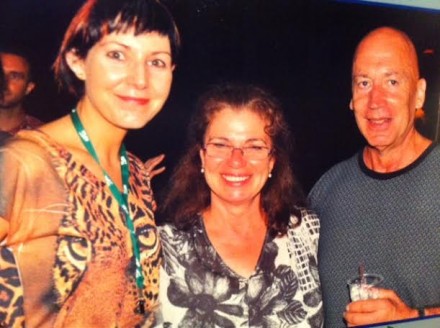Lizzie Crouch, David Robertson and Djuke Veldhuis of Monash University attended the 10th annual Australian Science Communicators conference (ASC2018) in Sydney in November 2018. Here, they jointly reflect on the conversations they had and sessions they attended.
None of us knew what to expect when attending the ASC2018. Having spent a large part of our recent working life in Europe, we were not overly familiar with the landscape of the science communication sector in Australia.
ASC2018 was an opportunity to find out more about the wider science communication community and to raise conversations about topics at the centre of our practice, including designing engaging events, art-science collaborations and institutional recognition of impact and engagement.
As well as meeting some wonderful people, from conversations, debates and workshops we identified recurring themes that provoked our thinking. We have captured these below and welcome feedback and your perspectives.
Silos or ecosystems?
There are many domains of science communication in Australia, and there seemed to be a degree of ‘silo’ mentality between them – school outreach; science edu-tainment for adults; strategic and political science communication; journalism and popular science writing; PR and research translation, and more. This phenomenon is not unique to Australia. Given that people have specific jobs and all have to specialise to some degree, you might ask, ‘Why is this a concern?’
Our observation is that this ‘silo mentality’ impedes collaboration and information sharing across sectors. People have had to work hard to build up their programs, prove what they are doing is valid and fight to get access to limited funds. It is therefore understandable why it can be tempting to hold on tightly to content, or critique activities of others based on one’s own objectives and approaches. But this leads to ‘competition’ and will ultimately prevent our practice developing as fast and efficiently as it could. Some silos are already starting to crumble – for example, the idea that researchers themselves are incapable of communicating about their field – but how to take down further barriers? How do we grow the field overall so there’s more resources to share around, rather than divide up and protect what little there is now?
Can we identify strategies for addressing this through lessons learned from other sectors and countries? And how do we identify factors and infrastructure that are unique to Australian science communication ‘silos’?
Communication or engagement?
The landscape of science communication and public engagement (PE) has changed dramatically in the last decade; many people now speak of public engagement rather than communication, reflecting a movement from deficit model to dialogue/engagement activities (although evaluation has shown that although the term ‘engagement’ is used, often the activities prioritise one-way delivery of information).
After working for almost a decade in the UK, and living this change, it was interesting to hear so many at ASC2018 speak only of science communication rather than engagement. But does this mean that engagement activities are not being done? Or is communication just a convenient label for a swathe of diverse activities? Many conversations made us think yes; others no. There was certainly substantial debate about whether we’re stuck in deficit model activities, and the usefulness of such definitions. Examples from other disciplines, such as ‘designerly’ approaches, offered the opportunity for new directions and collaborations.
One possibility is that, due to lack of interaction and a ‘competition for recognition’ between science communication ‘practice silos’, we are not listening to each other and appreciating the role for diverse types of activity/practice. Thinking of the sector as an ‘ecosystem of engagement’ could be helpful; like a biological ecosystem, each part of the complex web has a role and value, and while boundaries exist, these are places of active exchange and cross-pollination, rather than walls.
What’s our value?
As hinted at above, part of the struggle of science communication, whatever our practice, is to prove the value we create. Almost everyone seemed to be grappling with the same question: ‘How do I show that what I do has any impact on those I engage?’
As we move into an ecosystem of engagement, rather than deficit-model communication, it should be easier to justify the work we do. Evaluation frameworks which capture stakeholder insight and action as well as the usual demographics will be able to capture the rich value of our work; the inspiration, the behaviour change, as well as the knowledge learnt.
It was suggested during a number of sessions during the conference that a unified approach to impact-evaluation could allow us to share expertise and provide a national framework that would allow us to properly analyse the impact of our sector.
At the moment this type of impact is little recognised by formal reporting systems, such as the Engagement and Impact assessment (a companion activity to the Excellence in Research Australia). Could the creation of a national evaluation framework could allow better recognition of the societal and cultural impact of our work, enabling greater participation and funding?
The framework could draw on a number of existing sources such as Science Capital (a research project that seeks to ‘understanding patterns in science participation’ in the UK) and frameworks developed by cultural organisations around Australia. It will require a working group to speak on behalf of a diverse group of science communicators as well as state and federal organizations. It will be tricky to find a framework that works for all, but what could it look like?
Continuing conversations
We all appreciated the insights, contributions, conversations and efforts of our fellow science communicators at ASC2018 – as well as the organisers (especially Kali for tireless help!) and hosts at the wonderful Powerhouse. The questions above are not ones we can answer or resolve alone – we’d love to hear your thoughts, in the comments here, or in public forums such as Twitter.

